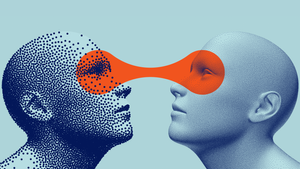YouTube has announced that it is introducing a new system via which its partners in the music industry will be able to request the removal of AI-generated music content that mimics the voice of a specific artist without permission.
The new tools will initially be available to those record labels and music distributors working with YouTube on its music AI experiments, and will then be rolled out more generally.
The Alphabet-owned company will develop policies regarding when to remove AI-generated cloned vocals at the request of a label or distributor and - perhaps more importantly - when such a request might be ignored.
There has been much discussion this year, of course, about the use of AI tools to imitate an artist's voice. The Ghostwriter track with vocals imitating Drake and The Weeknd - and subsequent moves by the music industry to get that track removed from the streaming services - was particularly newsworthy.
YouTube has been keen to position itself as a trustworthy partner for the music industry as it tackles the challenges and opportunities posed by ever more sophisticated generative AI, publishing three guiding principles around music AI back in August.
It is also thought to be working with the music industry on developing tools that would allow fans to generate vocals using a specific artist's voice, with the permission of said artist. This means that it has a vested interest in stopping the distribution of content of that kind that is produced without artist consent.
Quite how the new voice clone management tools will work on the industry side remains to be seen. Training an AI model to imitate an artist's vocals likely requires making use of an artist's recordings which will be controlled by the label or distributor. However, labels and distributors do not generally have wide-ranging involvement in an artist's publicity or personality rights, which are also being exploited.
YouTube announced a number of other measures yesterday regarding how it will manage the publishing of AI-generated content on its platform. That includes a new obligation on content creators to declare if they have used AI tools to create "altered or synthetic content that is realistic". That fact will then be sign-posted alongside the content within the YouTube platform.
People will also be able to request the removal of "AI-generated or other synthetic or altered content that simulates an identifiable individual, including their face or voice" via YouTube's privacy request process.
Again, not all such content will necessarily be removed, with YouTube stating that it will “consider a variety of factors when evaluating these requests. This could include whether the content is parody or satire, whether the person making the request can be uniquely identified, or whether it features a public official or well-known individual, in which case there may be a higher bar".

